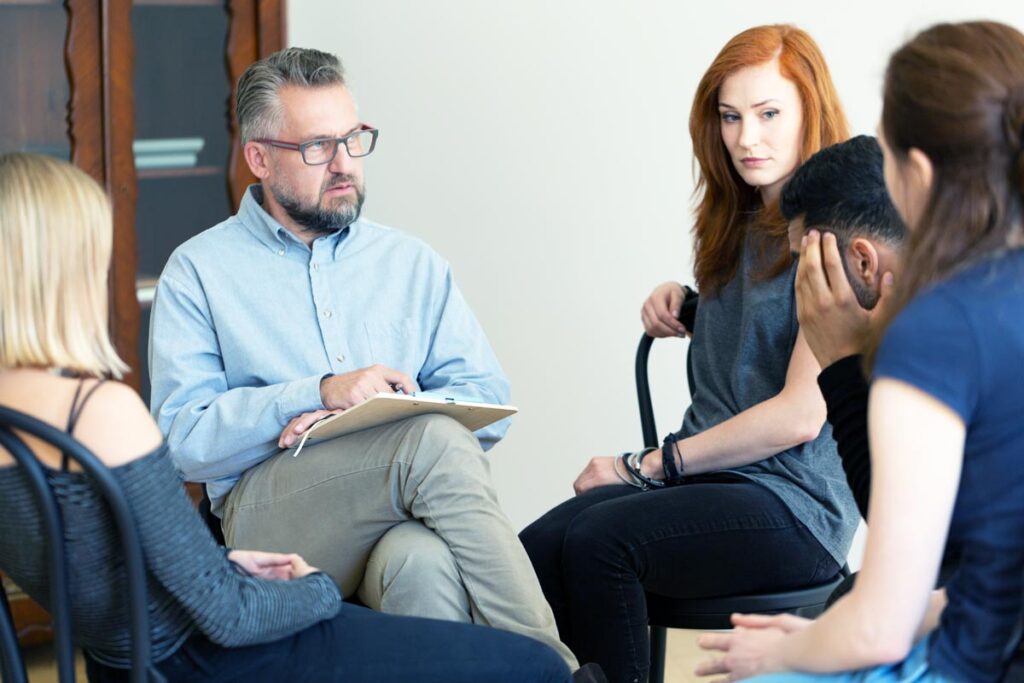Today, an estimated 46.3 million Americans qualify as having a substance use disorder. And, 16.1% of adults over the age of 26 have a drug use or alcohol use disorder. As a result, 1 in 8 children in the United States has at least one parent with a substance use disorder as of 2023. Those substance use disorders go on to impact children, creating trauma, and resulting in increases in adverse childhood experience reactions, which impact people for the rest of their lives.
Adult Children of Alcoholics or ACOA and its parent groups are designed to help the adult children of those parents to cope with life, to understand how their parents impacted them, and to navigate managing their current relationships with their parents. It’s designed to help you understand your past, to get peer support, to share, and to move beyond how you were raised so that you can be a functional adult.
What is Adult Children of Alcoholics and Dysfunctional Families (ACA)?
Most people are familiar with 12-step programs like Alcoholics Anonymous and Al-Anon. ACOA or ACA is the branch of this organization aimed at the children of people struggling with substance abuse problems, including behavioral dependency, substance abuse, and substance dependence.
ACOA is also a program which is about recovering from the experience of having a parent who is incapable of being a good parent. The program follows steps of acknowledging that your addicted parent was not capable of being a good parent and using that recognition to step away from needing those parents in our lives. ACOA calls this “Emotional Sobriety”, because the children of alcoholics often grow up needing approval and love from their parents as much as anyone else, resulting in toxic relationships where parents may even continue to use them. The program is designed around acknowledging that your parents can’t give you what you need and encouraging you to learn the skills, self-soothing, and self-compassion you need to go to treatment and undo the harm they did.
In this case, the 12 steps literally follow the path from emotional dependency on an addicted parent to self-reliance.
That’s especially important for adults in a situation of codependence. For example, many children end up taking care of their addicted parents, even from a very young age. It’s not uncommon to have even 5- and 6-year-olds making their parents breakfast and getting them out of bed on time when their parents wouldn’t otherwise. Children can also be leaned on as caregivers, to clean, to cook, to provide emotional support, and to care for siblings. Undoing that trauma and learning to feel valued and valuable without taking care of someone else or being a provider is an important part of the process.
Get Your Questions Answered Now
How ACOA Works

Adult Children of Alcoholics uses a formula to offer treatment and self-help to its patients. This is primarily in the form of defining problems experienced by the group and working towards solutions. The group lists 14 traits of an adult child of an alcoholic, which you are expected to recognize in yourself.
Those include:
- We are isolated from and experience fear around authority figures
- We seek approval at the expense of our own identity
- Angry people and personal criticism are frightening
- We over-rely on something such as substances, work, to feel fulfilled
- We constantly seek out victims in the people around us because we see the world from that viewpoint
- It is easier to be concerned for others than ourselves and we feel too much responsibility for others
- Standing up for ourselves results in feelings of guilt
- Excitement and feeling good are addicting (e.g., impulsivity, seeking out rollercoaster relationships, etc.)
- We over-rely on being able to pity and rescue people and form relationships with people who meet those requirements
- We are in denial or have closeted feelings of trauma and abandonment from childhood
- We have a low sense of self-esteem resulting in harsh self-judgement
- We depend on others and experience powerful fear of abandonment, sometimes to the point of seeking out people who cannot leave (e.g., sick, alcoholic, etc.)
- We have characteristics of substance use disorder whether or not we drink (e.g., addictive personality)
- We react to what happens to us rather than shaping what happens to us
This list is based on a letter written by the founder, called “The Problem”.
Once you acknowledge the items on that list, ACOA works to help people towards the solution. This includes a goal setting for each of those 14 problem statements. That’s about meeting the needs of the inner child, about finding peace with yourself, and about unlearning behavior and learning positive behavior to replace it.
For example:
- We step out of isolation and do not experience fear of other people
- We do not rely on helping others to have a sense of identity
- Angry people and criticism are not a threat
- We do not compulsively recreate abandonment
- We do not look for victimhood in our important relationships
- We do not use enabling to avoid our own shortcomings but instead work towards improving ourselves
- We rationalize through feelings of guilt
- We choose workable and stable relationships rather than excitement
- We do not think rescuing people is an act of love
- We stop denying traumatic childhoods
- We discover a sense of self-worth and stop blaming ourselves
- We grow in independence with interdependent relationships with healthy people
- We acknowledge, identify, and work to remove the characteristics of alcoholism
- We actively participate in shaping our lives
These steps are the same for everyone, but every attendee at ACOA can set their own goals and statements. In addition, you may find that not all of them apply to you.
Group Meetings, Sharing, and Learning

ACOA uses a 12-step format to introduce ideas, information, and learning. This means that joining a group starts out with showing up to a group talk, listening to people talk, and eventually joining in yourself. You’ll be given an opportunity to discuss your problems now and from the past. You’ll also be given opportunities to discuss themes and what problems or life experiences you’ve had that meet those themes.
ACOA also uses literature and mentors, known as sponsors, who can help guide you through the steps, and towards where you want to be.
That can involve figuring out where you have to separate yourself from your lifestyle, where you need to step back, where you need help, etc. And, you’ll get workbooks, tasks, peer support, and sharing experience to help you get to that point.
It’s important to keep in mind that organizations like Adult Children of Alcoholics and Dysfunctional Families is a self-help group. It does not offer therapy or counseling and it is not a professional treatment option. You may need both if you’re going to recover from a family history of addiction or dysfunction. Good luck with your journey.
If you or a loved one is seeking help for alcohol or other substance abuse, contact us at Stairway Resource Center today. At Stairway Resource Center we provide a 60 to 90-day outpatient program that takes place in an engaging and supportive community setting. We offer dual diagnosis treatment and daily group and individual therapy for our clients, in addition to fun community-based events and activities.

